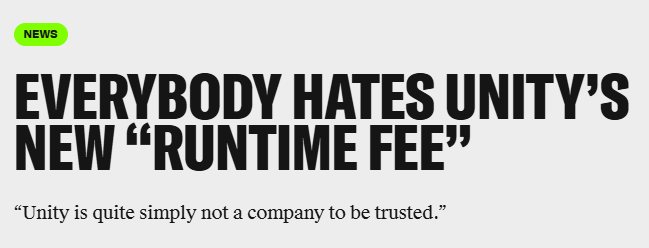Crisis in the Making: Ubisoft’s CEO Blames Player “Sensitivity”

Criticizing your customers is a risky play. Regardless of the venue, when a CEO speaks about those who buy their products, there’s risk of alienation. Take, for example, an investor presentation for Ubisoft that GamesRadar spotted, where Ubisoft CEO Yves Guillemot labelled feedback from customers as “bashing” and that the “toxicity in games and services” was a moderate or high risk factor for the company.
It is fine to acknowledge the increased scrutiny in today’s gaming landscape, but instead, these comments are landing as a subtle indictment of gaming audiences across the board. Toxicity in gaming is a real issue. Specific online audiences attacked Ubisoft for featuring characters like a black samurai and a woman as playable characters in a recent Assassin’s Creed game. Still, those fans, even the toxic ones, are your audience. Not all gamers know that story, not all audiences know what Assassin’s Creed is, and they’ll hear “sensitive” and feel their criticisms are being ignored.
The issue isn’t that Guillemot recognizes players’ concerns; it’s that his comment positions criticism as a threat, not an opportunity. While this is an investor’s presentation, not a demo of a new game, the audience is still listening. The real challenge is that it risks compounding Ubisoft’s reputational issues, which Guillemot is describing as a key risk. Good on them for spotting the cavity. Filling it will be another matter.
Ubisoft isn’t alone; game studios and tech leaders stumble (or recover) based on how they respond to criticism. Let’s explore the risk of Guillemot’s framing and the alternatives Ubisoft could follow instead:
The Problem With Blaming the Audience
Gamers are more discerning. They spend more, wait longer, and expect quality offerings in return. Labelling that as “sensitivity” implies fragility or overreaction, when what fans are expressing is often valid frustration. If the audience of a $455 billion industry is sensitive, their dollars will do the talking.
Ubisoft has multiple massive properties, like the action series Far Cry and Rainbow Six, but it has faced recurring concerns about franchise fatigue, live service bloat, and uneven releases. Ubisoft has more issues than just unwarranted culture war attacks. What are the creative and innovative ways that a company like Ubisoft could address the issues that are entirely in its control? I want to hear those.
Where This Has Gone Wrong Before
Blizzard’s “Don’t You Guys Have Phones?” Moment (2018)
Blizzard’s tone-deaf response to fan disappointment at BlizzCon when a developer dismissed outrage over Diablo Immortal by asking, “Do you guys not have phones?” has its own Know Your Meme page. Immediate negative feedback, immediate deflection, immediate reputation damage.
Diablo Immortal appears to be a pretty successful game. Even though its monetization strategy and audience weren’t fully aligned to begin with, it now has more than 10 million downloads on Google Play. It seems that the in-person audience salivating for the new desktop version of the game just wasn’t those people.
Just like Guillemot, Blizzard underestimated the passion and expectations of its fanbase, interpreting criticism as hostility rather than engagement.
Unity’s Runtime Fee Fiasco (2023)
In 2023, Unity sparked outrage after announcing new per-install fees. The policy itself was bad enough, but what made it worse was the CEO’s prior comment calling developers who didn’t prioritize monetization “fucking idiots.”

It wasn’t just the decision; it was the tone of leadership that deepened the backlash. A year later, the changes were rolled back, resulting in wasted time, wasted trust, and lost opportunities.

Both these cases show how you talk to your audience matters as much as what you say.
And Where It’s Been Done Right
CD Projekt Red’s Cyberpunk Redemption Arc
After Cyberpunk 2077’s buggy and underwhelming launch, CDPR didn’t deflect; it apologized—publicly, multiple times. Then, it fixed the game, added major updates, and reignited excitement with the Netflix Edgerunners anime.

That turnaround wasn’t magic. It was built on humility, transparency, and a commitment to players.
Hello Games’ Silent Recovery with No Man’s Sky
At launch, No Man’s Sky fell far short of the hype. However, instead of blaming players, Hello Games went quiet, rebuilt the game over the years, and released free expansions that transformed perception.

They didn’t need PR spin. Hello Games let its work do the talking.
Final Thought: Criticism Isn’t the Enemy, It’s the Signal
Ubisoft doesn’t have to fear its players’ voices. It should harness them. The most vocal critics are often your most passionate customers, the ones who care enough to demand better. At the same time, Ubisoft needs to address the issues that are in its control, like Hello Games and CD Projekt Red did.
When leaders appear unbothered or unprepared in the face of valid concern, they don’t just deflect responsibility. They risk looking like they’ve lost control of the vision.
The better route? Embrace the scrutiny, rally behind the games, and lead from the front.
James Rubec
James Rubec is the Head of Product at Fullintel, specializing in PR analytics and media intelligence. With more than 15 years of experience at the intersection of public relations, digital media, and crisis communication, he has advised global brands on navigating complex social media landscapes and reputation management strategies. His profound expertise in social sentiment analytics, predictive analytics, and actionable media insights uniquely positions him to guide PR professionals through the evolving challenges of digital media monitoring.
James Rubec is the VP of Product Development at Fullintel, where he leads the development of cutting-edge media monitoring and analysis tools tailored for PR and communications professionals. With a deep background in media intelligence, analytics, and AI-driven insights, James specializes in transforming vast amounts of media data into actionable intelligence for Fortune 500 companies, government organizations, and top-tier agencies. His expertise spans media measurement, sentiment analysis, and the strategic application of AI to enhance PR decision-making. Under his leadership, Fullintel has pioneered innovations in AI-powered media monitoring, crisis detection, and competitive benchmarking, ensuring clients stay ahead in an increasingly complex media landscape.


